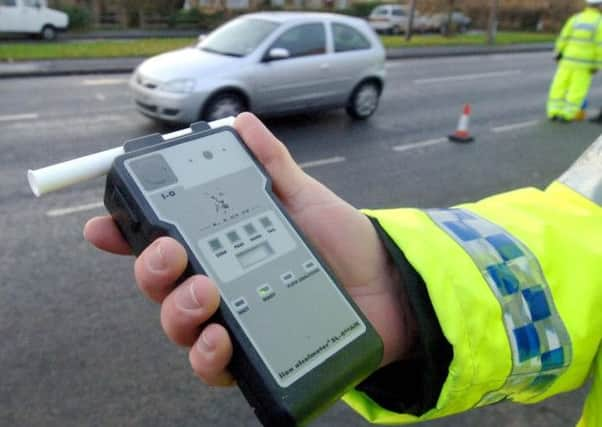50 years on, we’re ashamed to be drink-driving


However, 18 to 24-year-olds are seven times more likely to think drinking and driving is acceptable than 55 to 64-year-olds, the poll by the Government’s THINK! campaign showed.
And research from the AA found that women are kicking the drink-drive habit more slowly than men, although males are still the main offenders.
Advertisement
Hide AdAdvertisement
Hide AdBased on responses from 2,000 people, the THINK! survey showed that 91 per cent agreed drink-driving was socially unacceptable and 92 per cent would feel ashamed if caught offending in this way. But seven per cent of 18 to 24-year-olds said drink-driving was acceptable compared with only one per cent of 55 to 64-year-olds.


Older people were most likely to see drink-driving as socially unacceptable and would also be more likely to be ashamed by it, which suggests the public information campaigns over 50 years have reinforced this message.
To mark the 50th anniversary THINK! is launching a new hard-hitting campaign which juxtaposes Kool And The Gang’s cheery 1980 Celebration song with a dramatic crash scene and the sequence of events that follow, reminding people that there are still too many people being killed on the roads by drink-drivers.
The first campaign, in November 1964 came in the form of a public information film set in an office Christmas party.
Advertisement
Hide AdAdvertisement
Hide AdRoad deaths because of drink-driving have fallen from 1,640 in 1967 to 230 in 2012.
In 1979, more than half of male drivers admitted drinking and driving on a weekly basis, with the proportion rising to two thirds for young male drivers.
Today, more than 88 per cent of people say they would think badly of someone who drinks and drives and 45 per cent of respondents said they would prefer to tell their partner they watch pornography regularly than confess to being caught drink-driving.
Transport Secretary Patrick McLoughlin said: “The change in attitudes to drink-driving over the last 50 years is a huge success story. It is hard to imagine now how shocking and ground-breaking the first drink-drive campaigns were. Clearly, THINK! has had a significant impact.
Advertisement
Hide AdAdvertisement
Hide Ad“Most of us understand drink-driving wrecks lives but there is further to go. In 2012, 230 people were killed in drink-driving accidents – 230 too many.”
Highlighting official figures, the AA said that while the likelihood of a male driver failing a breath test after an accident was falling steadily, the decline in female failure rates was only a third of men’s.
This summer, one of Yorkshire’s most senior police detectives was sacked for failing to provide a specimen for a drink-driving breath test.
Detective Chief Superintendent David Knopwood, head of West Yorkshire Police’s Protective Services, had been banned from driving for 12 months and fined £1,000 at a court hearing.
He failed a roadside breath test when he was stopped by officers in Knaresborough on 28 April. He admitted refusing to provide a further specimen.